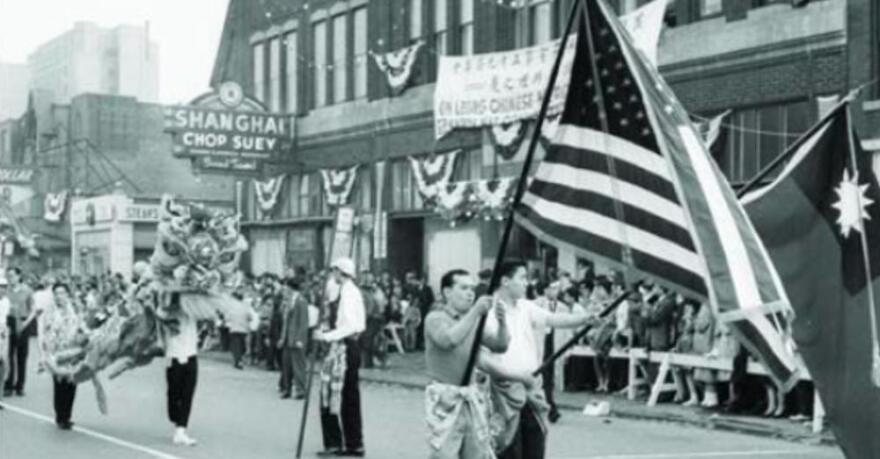The city of Detroit recently demolished a building with deep ties to the city’s Chinese-American community. The Cass Avenue building served as a meeting place where Chinese-Americans could not only find and give assistance in finding jobs, a place to live, and other resources, but speak and hear the language with others and find familiar foods.
For Richard Mui, a board member with the Association of Chinese Americans (ACA), the area holds memories of tutoring Chinese senior citizens in English once a week. The building and Detroit Chinatown also have intergenerational ties. Mui recounted a mortgage in his family being consigned by the owner of a restaurant in Chinatown.
“As a second generation Chinese-American, my foundation has been paid by the help of others,“ he said.
There have been several new developments in the area, with new restaurants and businesses opening up. However, with the decision made by Olympia Development, the real estate arm of Ilitch Holdings Inc., to raze the Cass Avenue building, this building will not get to be a part of “the renaissance of the area,” as Mui described.
News of the building’s demolition only became widely known about a week ago, and it immediately received backlash. Upon hearing about the demolition plans, Detroit City Councilwoman Gabriela Santiago-Romero unanimously passed a resolution to hold off on Olympia Development’s plans and consider the possibility of pursuing historic designation status for the building.
While the request to delay demolition for one month was initially approved, the council was overruled by the city’s corporation counsel. Even with the public support of many community members, the opinion issued by the corporation counsel, which stated that the building should be demolished immediately, took precedence over their efforts.
“It would have been good if they had taken a deeper look at its historical significance and what it meant, not just for the Chinese-American community, but I think that's also part of the history of Detroit,” said Mui. For decades, the building and the surrounding area provided Detroiters with Chinese cuisine, which Mui noted was distinct from many other restaurants at the time.
What’s to come of the site is unclear. Mui hopes there will be conversation with Olympia Development and the city about how they can recognize and commemorate the role the building has played in both the city’s Chinese American community and also the growth of the city as a whole.
While the building’s story has abruptly been cut short, the importance of the site and Detroit Chinatown’s history is an ongoing conversation. Mui notes there is an exhibit about Detroit Chinatown coming up this fall at the Detroit Historical Museum, as well as a new book by Curtis Chin about his experience growing up in Detroit Chinatown to be released this October.
The ACA also works with communities outside of Detroit, offering mental health workshops, monthly health screenings, summer internships, youth leadership programs, and other services to the Chinese American community.
When historical community spaces such as this building are demolished, it contributes to what Mui calls “historical amnesia.” Mui noted that the Asian-American community has “been part of America for a long, long time,” and decisions like this work to diminish the long-standing role these communities have played in American history.
“To be able to interact with people from around the world with different cultures and things like that is, I think, a good thing for everyone,” said Mui. “When we begin to lose some of that, we get a lot of the sameness in terms of culture and food and everything else. I think there is something lost in that.”
Mui emphasized that this property shouldn’t just be of concern for the Chinese-American community or the wider Asian-American community — it should be of concern for the metro Detroit community.
“So as Detroit has come and gone and come again, the Chinese-American community, this building, and Detroit Chinatown has been part and parcel of all that,” Mui said.
[Get Stateside on your phone: subscribe on Apple Podcasts, Google Podcasts, or Spotify today.]









